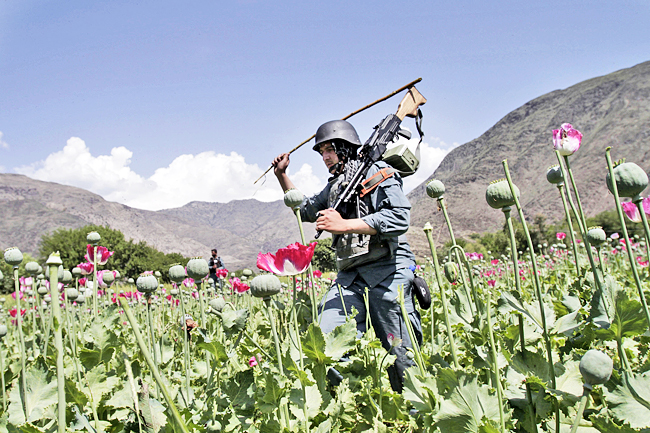ISLAMABAD (AP) – Afghanistan is the world’s fastest-growing maker of methamphetamine, a report from the United Nations (UN) drug agency said yesterday.
The country is also a major opium producer and heroin source, even though the Taleban declared a war on narcotics after they returned to power in August 2021.
The UN’s Office on Drugs and Crimes (UNODC), which published the report, said meth in Afghanistan is mostly made from legally available substances or extracted from the ephedra plant, which grows in the wild.
The report called Afghanistan’s meth manufacturing a growing threat to national and regional health and security because it could disrupt the synthetic drug market and fuel addiction.
It said seizures of meth suspected to have come from Afghanistan have been reported from the European Union and east Africa.
Annual meth seizure totals from inside the country rose from less than 100 kilogrammes in 2019 to nearly 2,700 kilogrammes in 2021, suggesting increased production, the UN report said.

But it couldn’t give a value for the country’s meth supply, the quantities being produced, nor its domestic usage, because it doesn’t have the data.
UNODC Research and Trend Analysis Branch Chief Angela Me told The Associated Press that making meth, especially in Afghanistan, had several advantages over heroin or cocaine production.
“You don’t need to wait for something to grow,” said Me. “You don’t need land. You just need the cooks and the know-how. Meth labs are mobile, they’re hidden. Afghanistan also has the ephedra plant, which is not found in the biggest meth-producing countries: Myanmar and Mexico. It’s legal in Afghanistan and it grows everywhere. But you need a lot of it.”
A spokesperson for the Interior Ministry, Abdul Mateen Qani, told the AP that the Taleban-run government has prohibited the cultivation, production, sale and use of all intoxicants and narcotics in Afghanistan.
He said authorities have destroyed 644 factories and around 12,000 acres of land where prohibited narcotics were cultivated, processed or produced. There have been more than 5,000 raids in which 6,000 people have been arrested.
“We cannot claim 100 per cent that it is finished because people can still do these activities in secret. It is not possible to bring it to zero in such a short time,” said Qani. “But we have a four-year strategic plan that narcotics in general and meth in particular will be finished.”








